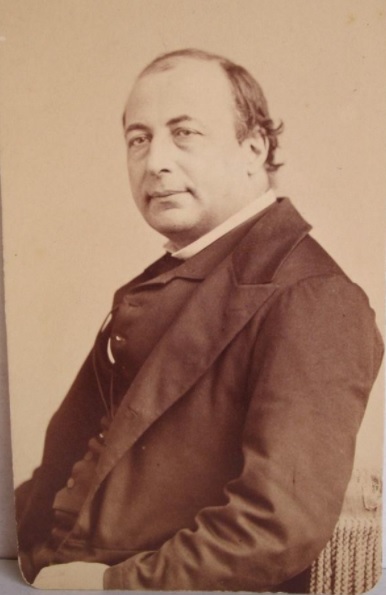Celebrity Priest Visited Norfolk on Thanksgiving in 1869
A Look Into Norfolk’s Past
By Andra Moss
In the Spring 1895 issue of Connecticut Quarterly (“Devoted to the Literature, History and Picturesque Features of Connecticut”), there appears a beautifully written essay on Norfolk by Adele Greene. She notes its natural beauties and praises its residents, including the Rev. Dr. Joseph Eldridge, who “was for forty-two years the beloved and honored pastor of the Norfolk church”. She notes that, “The doors of his home were opened with large sympathy, and his hearth was sought by many, even from afar, who always found there rest and intellectual stimulus.” One such special visitor, she notes, “was THE Pere Hyacinthe.”

Photo courtesy of Wikipedia Commons
The name–decidedly exotic–may no longer be familiar to most Americans, but there was a time in the 1860s when Père, i.e., Father Hyacinthe, was known throughout the world. Born Charles Jean Marie Loyson in 1827, he was a French Carmelite monk whose scholarship, eloquence and talent for public speaking won him the pulpit at the Cathedral of Notre Dame in Paris. The great poet, Victor Hugo, admired him. Napoleon and Empress Josephine attended his sermons. He was described in 1867 by the New York Times as having been, “for years the reigning sensation, the popular idol of the most impulsive and the most fickle city in the world.”
So how did Father Hyacinthe find himself in Norfolk, Connecticut for Thanksgiving in 1869? It was most likely his excommunication by Pope Pius IX.
Father Hyacinthe had always been modern in his views, but when he suggested in a speech in June 1869 that the Jewish religion, the Catholic religion, and the Protestant religion were “equally acceptable in the eyes of God and worthy of being taught to men” and then when he protested the concept of the infallibility of the Pope, he had gone too far in the eyes of the Catholic Church. He was ordered to retract. He refused and was excommunicated. It was the talk of the continent.
It was soon after “the breach”, in October of 1869, that The Meriden Daily Republican reported, “Father Hyacinthe, the famous preacher has left Paris, sailed for America, and will soon be upon our shores. We presume he will not be very cheerfully welcomed by the Catholic portion of the community, but otherwise his appearance will be the sensation of the day.”
Although his first visit to this country totaled less than eight weeks, he found his way to the Northwest Corner. The Hartford Courant of November 27, 1869 shared that, “Father Hyacinthe, who spent Thanksgiving in Norfolk as the guest of the Rev. Dr. Eldridge, is thus described by a correspondent of the Litchfield Enquirerer, who saw him in church on that day: ‘In the pastor’s pew, at the right of the pulpit, he was easily observed. The impression of his countenance was that of a man of strength and classical refinement, with a cordial, sympathetic temper… A social rather than monastic cast is apparent…’”
It is unclear how long he remained in town, but the mystery of communication throughout Father Hyacinthe’s stay was resolved by the observation of the Courant on Dec. 8, 1869 that, “The passengers in the New Haven cars a few days since were vastly entertained, if not edified, by an animated and earnest conversation between Father Hyacinthe and the Rev. Dr. Coxe of New York. Happening to be seated near one another, and the friar speaking no English and the doctor no French, they adopted the Latin, which both speak with fluency, and the conference took a wide theological and ecclesiastical range.”
After meeting with Rev. Henry Ward Beecher and delivering a standing-room-only talk at the Academy of Music of New York to benefit the French Benevolent Society, Father Hyacinthe returned to Europe to continue his pursuit of an unsectarian church and the reconciliating of religion with liberal ideas.He also got married. In September 1872, he wed American sculptor and widow, Emilie Jane Butterfield Meriman in London. Their son was born one year later.
